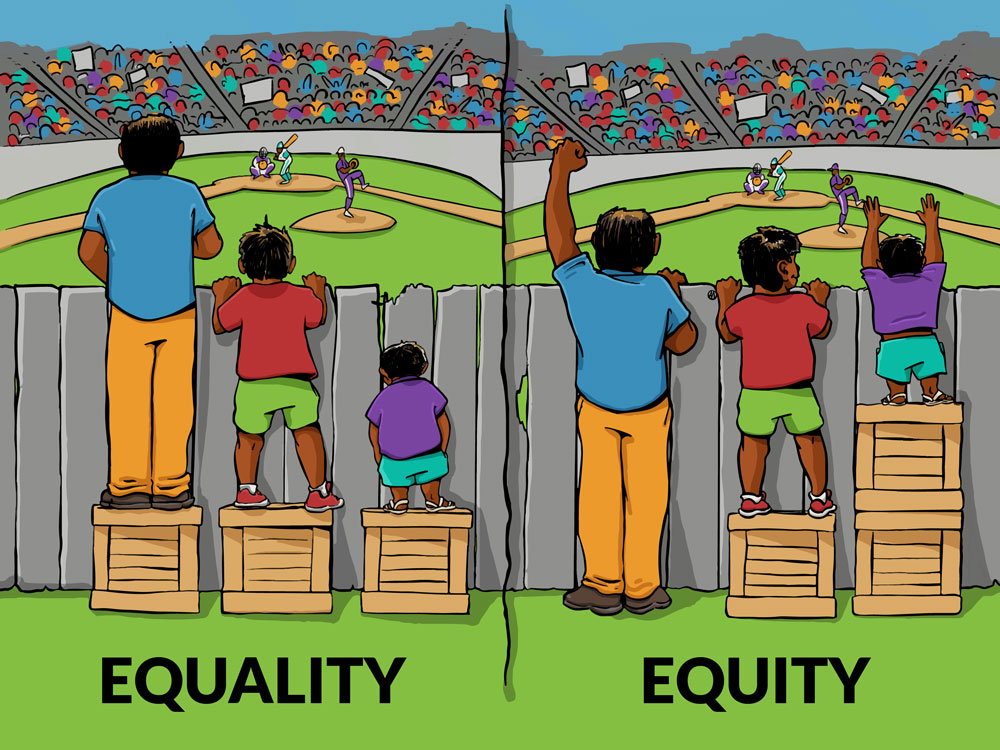
Part of the American ethos is to promote the survival of the fittest. As a capitalist nation, we extend Darwinian values into our social fabric by celebrating the biggest and brightest, while marginalizing everyone else. We imagine our country as a level playing field where anyone can make it, and if you don’t make it on your first try, you’ll get another chance later.
A less heralded, but just as important component of the American ethos is that of neighbors pulling together in times of need. It comes in the form of volunteer organizations like the Cajun Navy, which responds with volunteer water-borne rescue teams in flooded areas. But it also comes in the form of the Philando Castile Relief Foundation, which uses the money from his posthumous legal settlement with the city of Minneapolis to pay the school lunch debts of local children.
Inspiring as these individual efforts are, they are piecemeal solutions to larger problems like a housing scarcity that forces the poorest Americans to live on floodplains and a benefits “donut hole” for families not poor enough to qualify for school lunch, but still unable to afford three square meals a day on their own incomes.
During my family’s spring break travel to the Northeast, we were struck by the economic growth of Boston and New York City versus the struggle for improvement in Buffalo and New Haven. Boston has a long list of gentrifying and growing neighborhoods that were once hardscrabble, including Roxbury, South Boston and the Seaport District. Similarly, New York City is experiencing a boom in almost every corner. Even The Bronx seemed vibrant in a way it wasn’t when I last visited twenty years ago.
Meanwhile, Buffalo and New Haven still struggle with large undeveloped blocks in their city core, hollowed out shopping centers, and other large parts of downtown that have almost no pedestrian activity after work hours – a sign that people would rather spend their time and money somewhere else.
When we compare Boston and New York to every other Northeastern city, the differences are obvious: Boston is the national’s capital of higher education and New York is the capital of the nation’s financial and media industries. There’s no doubt that resources and the best and brightest will flow to these places. Every town should aspire to be like Boston and New York City, we think, so they can get the best of everything.
The reality of America is that survival of the fittest always ends up leaving someone behind, and once you begin to fall behind a little bit – for instance you can only afford to live on a floodplain or can’t pay for three meals a day – you become part of a vicious cycle of disadvantage that never gets better.
The traditional American ethos, survival of the fittest, is founded on a concept of equality: Anyone can make it in America. But instead, we’re finding our nation’s biggest challenges are about access to the things we need to have good lives, such as economic opportunity, good education, regular health care, and increasingly access to a healthy environment in the form of not only clean air and clean water, but also stopping climate change before it immeasurably alters the world we live in.
This crack in our system, providing access, is about equity, which differs from equality in that a measure of fairness is employed in the distribution of resources. Equality gives everyone the same resources, while equity distributes resources based on need.
While there are certainly parts of Boston and New York that need more assistance than others, the resources available to their citizens are considerably more than in Buffalo and New Haven. For instance, both Boston and New York offer free school lunch (and breakfast) to any child who wants it. New York even offers free meals to kids throughout the summer.
The result should be no surprise: Boston and New York City’s graduation rates in 2018 were 75.1% and 75.9% respectively, while Buffalo’s was 64.5% (but up from 2012’s abysmal 48%). If you start life with a lack of resources, getting a leg up matters.
It turns out that concepts of equality and equity are split along conservative and liberal lines, writes Dan Meegan in The Atlantic. Conservatives favor equality, when asked to contribute more than they should expect to receive in return, while liberals favor equity, which benefits those whose needs are most urgent.
Meegan wants liberals (a.k.a. “Democrats”) to craft policies that will address conservative concerns, to win elections:
“One way or another, liberals must recognize that many Americans define “fairness” in terms other than aid to the neediest—and should craft their messages for 2020 accordingly. Donald Trump’s recent budget proposal includes cuts to Social Security and Medicare. Will Democrats be smart enough to point out that he’s threatening benefits that Americans have paid for and that they deserve?”
But I believe this is a route to oblivion. America’s failing communities have so many problems, that some need extra help just to catch up. For instance, some rural hospitals need supplemental funding because they will never get enough patients to afford expensive specialist doctors like surgeons. Without nearby specialists, rural patients are forced to travel hundreds of miles for care that’s easily accessible in cities. What’s fair? Equal funding to hospitals, which effectively gets rural patients nothing, or equity, which provides surgeons?
This equality versus equity problem is playing itself out in a thousand different ways across America in school lunches, daycare provision, police profiling, higher education funding and public transit availability. Until we shed social Darwinism from our political decision-making, America’s economic growth will be limited and our moral leadership will be eclipsed by Canada, Europe and every other Westernized nation.
American problem solvers should stop worrying about how to ensure equality, but should instead figure out how to explain why equity benefits us all.